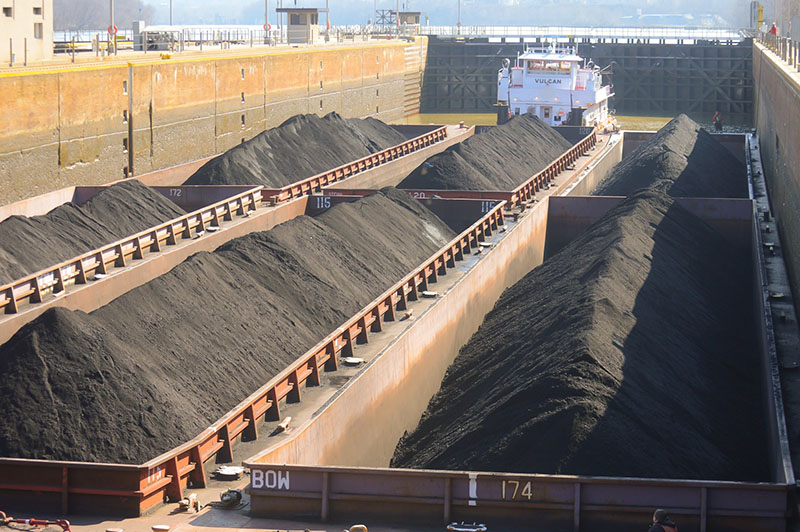A two-week deep freeze has icebreakers busy from Maine to Virginia. But with the eastern U.S. power grid weathering the blast, federal energy regulators declined the Trump administration’s call for new supports for coal power plants.
The Federal Energy Regulatory Commission on Monday rejected a proposal, initiated by Energy Secretary Rick Perry, that would have set subsidies for power plants that maintain a 90-day supply of fuel on site, in the name of grid reliability.
FERC commissioners said they will continue to examine the issue, but their decision is a big blow to President Trump’s promise to bring back coal – and the companies that rely on it, like inland barge companies that lost business as plants shut down.
Trump explicitly linked the two at a June 7 event at Cincinnati, Ohio, where an Ingram Barge Company tow loaded with coal on the Ohio River served as the backdrop, as Trump talked of rebuilding the nation’s infrastructure.
“They’re filled with West Virginia coal,” Trump said. “We’re putting the miners back to work.”
In arguing for federal support for coal power plants, Perry said continued retirements could endanger “the reliability and resilience of our nation’s grid.” Perry made that case for setting power rates that would ensure those plants continue to be financially viable.
But the proposal met broad opposition from other utility companies, consumer groups and power-intensive industries that would pay more. Opponents argued that failures in transmission in distribution, not fuel outages, by far cause more blackouts.
The proposal was aimed at shoring up the finances of older nuclear and coal power plants, which have been taking a price beating in the energy markets from cheap natural gas and to a lesser extent from new solar and wind generation, as those renewables come down in price.
Pressured by competition from gas-fired generators and the Obama administration drive to reduce power plant emissions, aging coal plants accounted for 52% of the generation power that was retired between 2010 and 2015 according to the government.
FERC officials said they are initiating their own study of grid resilience, directing operators of the nation’s regional wholesale power markets to provide within 60 days “information as to whether FERC and the markets need to take additional action on resilience of the bulk power system.”
“The goals of this proceeding are to develop a common understanding among the Commission, industry and others of what resilience of the bulk power system means and requires; to understand how each regional transmission organization and independent system operator assesses resilience in its geographic footprint; and to use this information to evaluate whether additional Commission action regarding resilience is appropriate.”





